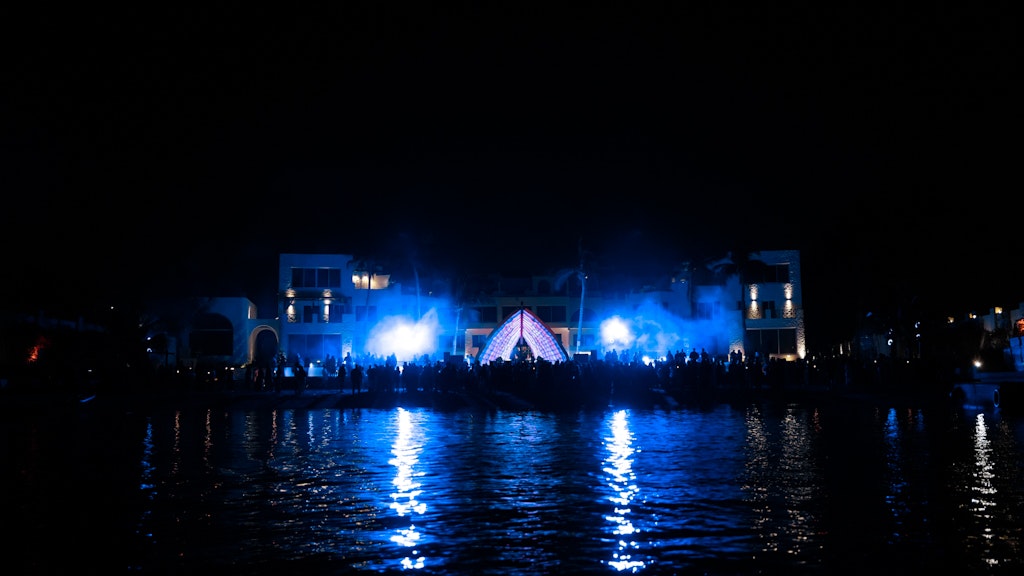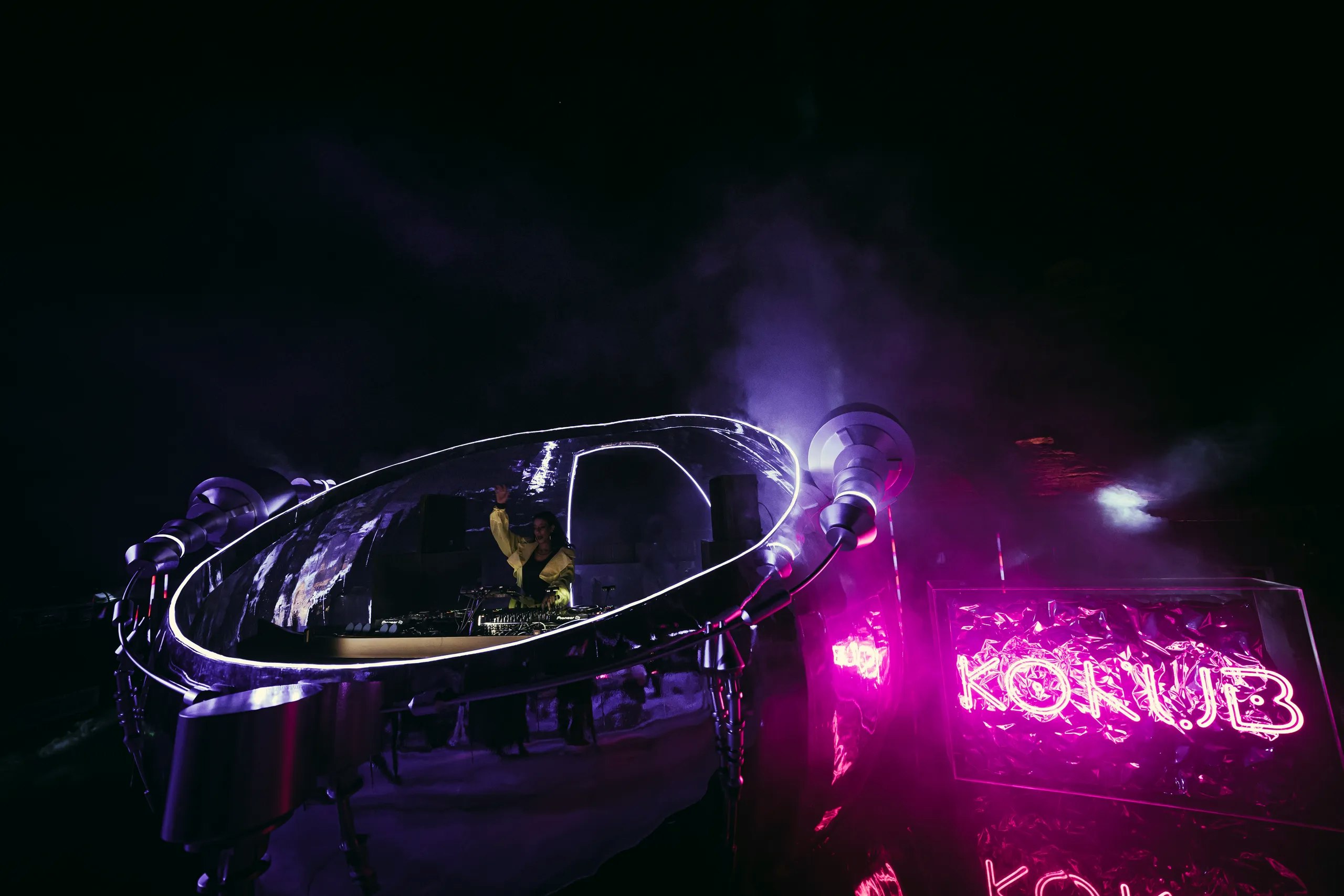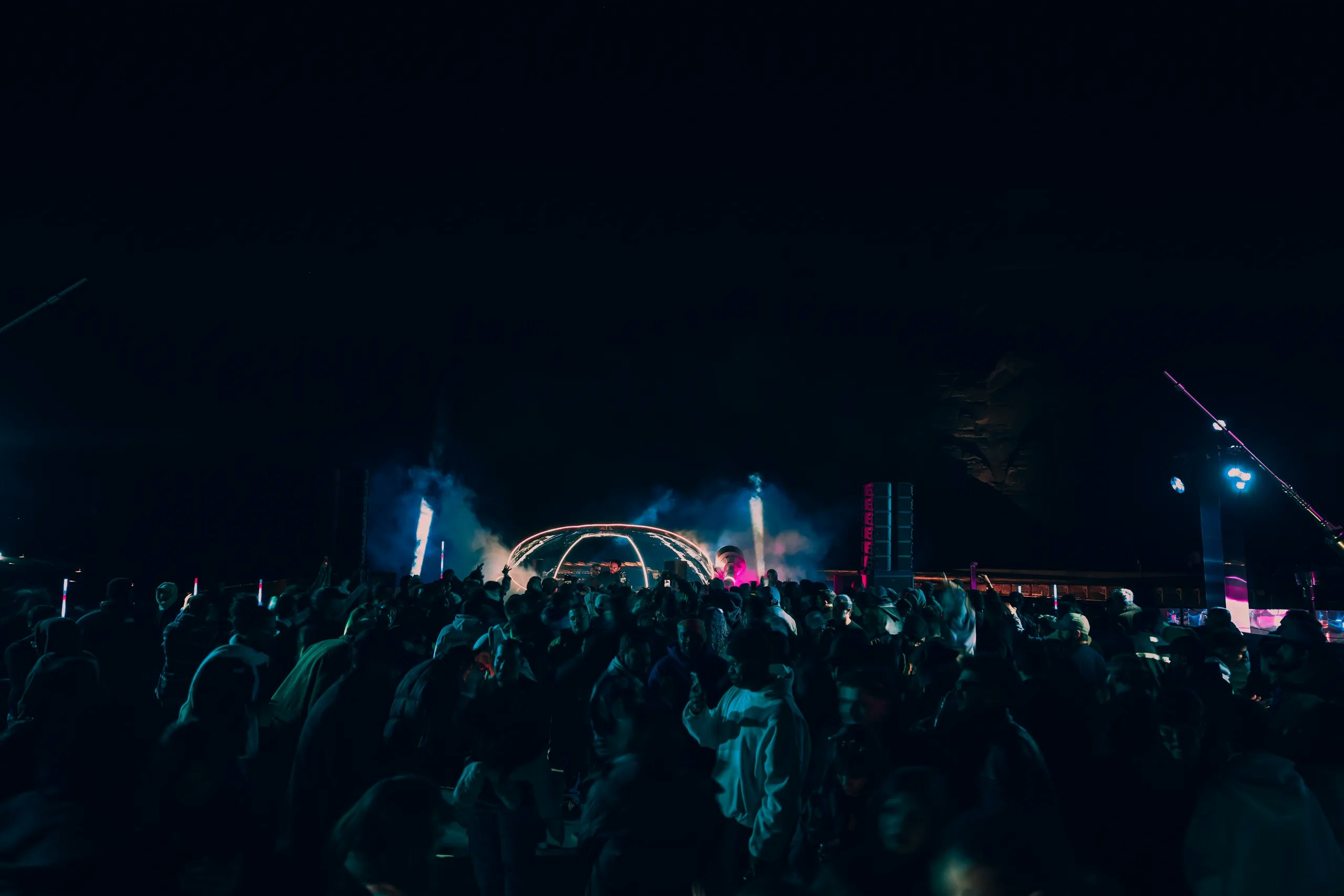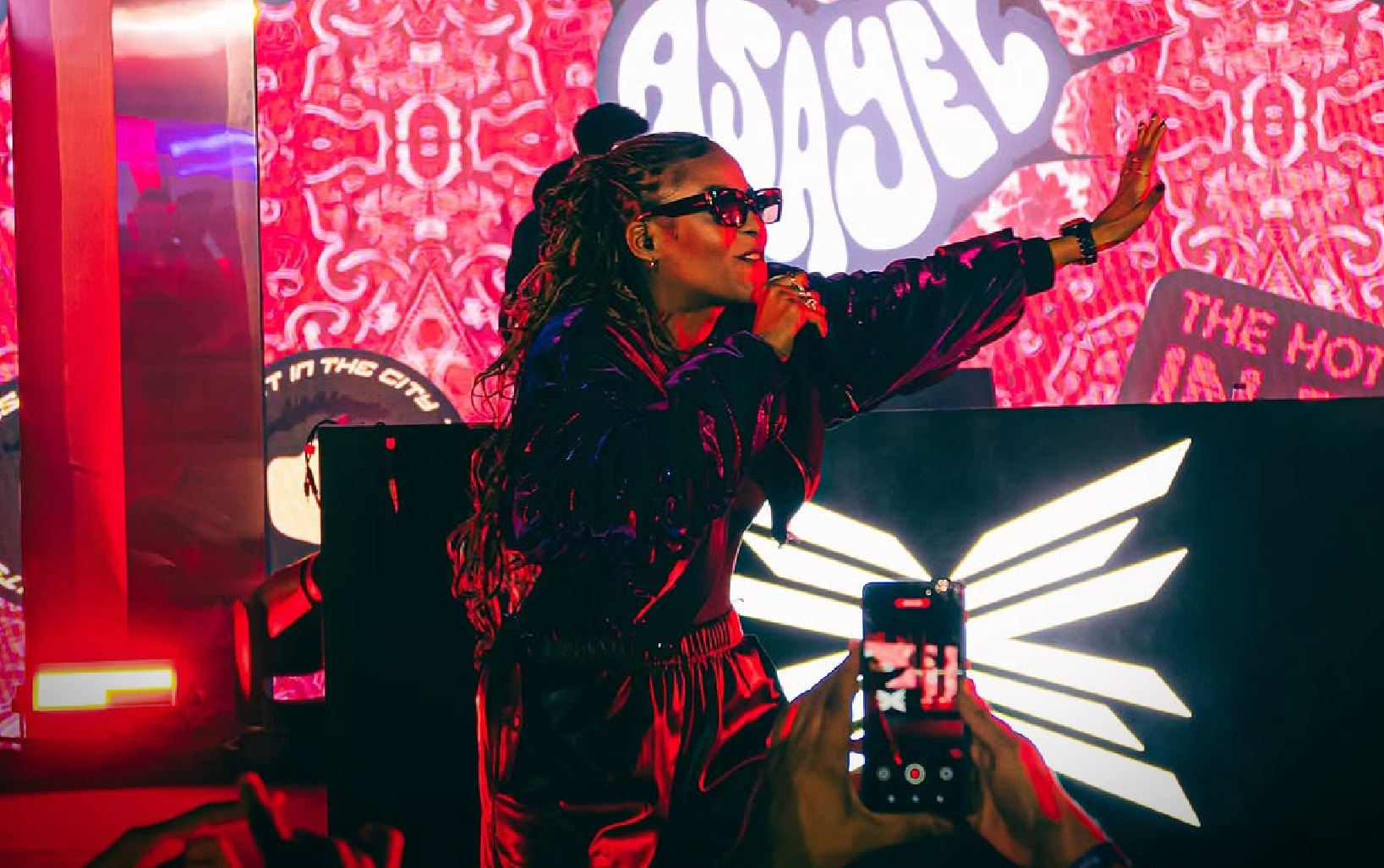
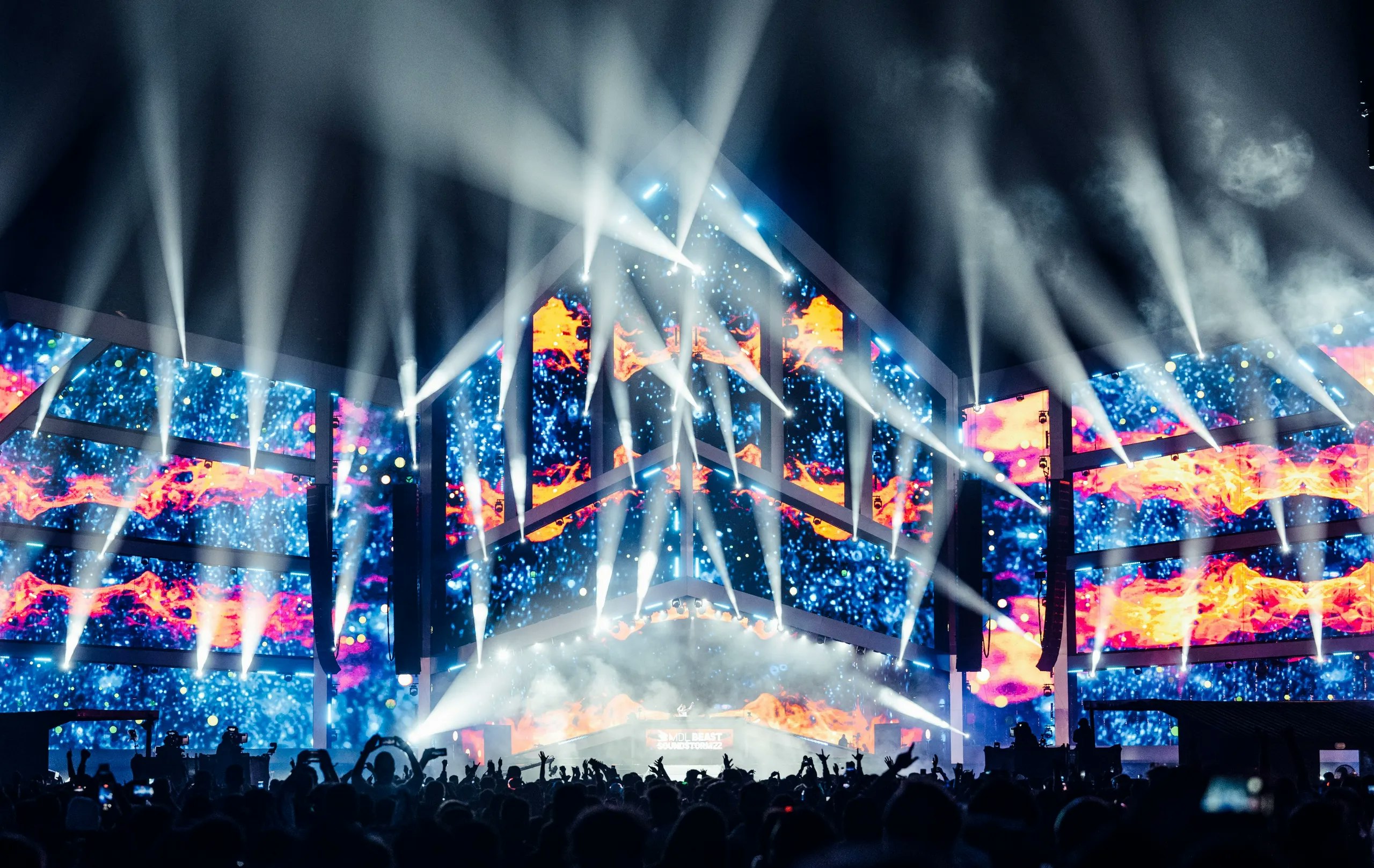
What is a Virtual Festival?
By MDLBEAST
December 26 2023
What is a Virtual Festival?
By MDLBEAST
December 26 2023
In an era where digital innovation continually transforms our daily interactions, music festivals have evolved beyond their traditional physical confines and into the digital realm.
Virtual festivals, also known as streaming concerts or live-stream concerts, have emerged as a major trend in contemporary music. During the COVID-19 pandemic, events like these gained significant traction as the prohibition of social gatherings prompted more creative solutions. By offering a virtual experience, they enable greater accessibility and connect audiences with artists.
In this article, we'll discuss virtual music festivals, their rise to prominence during a global crisis, and their role in reshaping the music industry.
What Are Virtual Music Festivals
Virtual music festivals are online events that allow viewers to enjoy live performances, DJ sets, and other musical performances from the comfort of their own homes. These are not just exclusive to music and have expanded to include virtual film festivals and virtual art exhibitions as well.
The virtual festival experience likely includes real-time performances, some sort of interactive element(s), and opportunities for fans to engage with the artists. They aim to bridge the physical divide by bringing music enthusiasts together in a digital sphere, where they can share their passion for live performances without the need for social gatherings.
These digital gatherings widely emerged during the COVID-19 pandemic as a response to the cancellation of large-scale, in-person events.
The Rise of Virtual Festivals During COVID-19
The COVID-19 pandemic had a profound and lasting impact on the music industry. Traditional methods of live performance, including tours, concerts, and music festivals, were disrupted, and artists and event organizers had to adapt their business models quickly. Virtual music festivals emerged as a practical solution to the dilemma that those in the industry faced, but also as a way to maintain a connection between an artist and their fans.
With music enthusiasts longing for a sense of normalcy and connection, virtual concerts and festivals provided a lifeline to the world of shared music. Musicians and DJs started live-streaming their performances from their homes or studios as a way to connect with and provide relief of sorts for fans at first. Pretty soon, even established festivals started to redirect to virtual platforms. Fans and artists alike found solace in these virtual concerts.
These virtual gatherings represented more than just musical performances; they stood as a sign of global response to a shared challenge. Audiences could feel a sense of connectivity through music, which created a sense of unity and solidarity amidst a period of extreme uncertainty. Virtual festivals became a metaphor for resilience and adaptability, demonstrating the music industry’s ability to bounce back from setbacks with creativity and innovation.
The Evolution of Music Festivals: From Ancient Origins to Virtual Realities
To understand the significance of the emergence of virtual festivals, it's essential to explore the history of music festivals. While the gathering of people around music has a rich and diverse heritage that dates back as far as music itself goes, the conception of music festivals, as we know them today, started around the time of the Ancient Greek Pythian Games.
MDLBEAST's Soundstorm Festival: A Modern Revolution
Among the modern trailblazers of the music festival experience is MDLBEAST, with their groundbreaking Soundstorm Festival. This event redetermines the boundaries of what a music festival can be, both in its physical and virtual events. While Soundstorm is known for its highly immersive physical gatherings, it also ventured into the digital realm during the COVID-19 pandemic, showcasing its commitment to innovation.
Soundstorm highlights the fusion of art, technology, and the celebration of diverse music genres. Its virtual experiences provide a platform for artists to perform and interact with their fans on a global and more accessible scale.
The Ongoing Impact of Virtual Music Festivals
As the world moves further away from the immediate crisis of the pandemic, virtual music festivals have withstood the test of time and continue to play a significant role in the music industry. While not preferred over the traditional in-person festivals and concerts, which we’ll always be most accustomed to, they do serve their purpose.
More and more DJs especially, have turned to live-streaming their sets as a way to reach global audiences within a controlled setting, offering unique opportunities for both emerging and established talents.
They offer accessibility, affordability, and a sense of community for fans who may not otherwise have the means or opportunity to attend these physical events. Artists can also experiment with creative concepts, stage designs, and multimedia experiences, expanding the possibilities of live performance. Additionally, virtual festivals also offer a solution to the sustainability crisis, which festival organizers are trying to incorporate into their business model.
-
Virtual festivals have proven that they’re not just a temporary fix, but a complementary element of the music festival landscape, which will continue to rapidly evolve.
Share this
